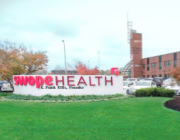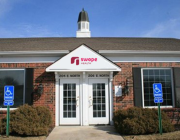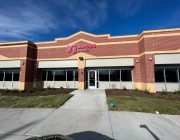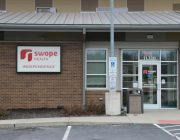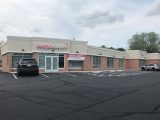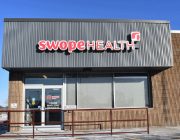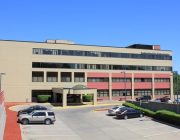Swope Health announces a new edition of its podcast, One on One with Swope Health, featuring a conversation with Marvin Lyman, a community organizer/developer.
Eric Wesson, founder and publisher of The Next Page KC, a newspaper focused on the Black community, hosts the show’s conversations with Kansas Citians about issues of importance to the community’s health and wellbeing.
In this episode, Wesson and Lyman discuss challenges of developing property in Kansas City’s East Side and urban core neighborhoods, areas that traditionally have not received development investment at the same rate as other parts of the city.
Lyman is a Kansas City native who draws upon his family’s experience of running Papa Lew’s Soul Delicious restaurant for 31 years. The restaurant, originally located in the 18th and Vine Historic Jazz District, was a popular eatery that also supported the community with holiday meals for those in need. Lyman worked in teaching and the restaurant business and then moved into economic development and real estate redevelopment with CJR Development Partners.
His most recent work is along the Prospect Corridor, the site of an equitable transit-oriented development plan originally pursued by the city of Kansas City and the KC Area Transportation Authority. The study, however, didn’t engage members of the nearby community. Lyman related how he attended a planning meeting and asked a simple question: How will this benefit Black people? The response was silence.
Later, he collaborated with an architect on the project and formulated a strategy to bring the local East Side community into the planning. He launched the Heartland Equitable Development Symposium, with local Black developers, banks, foundations, and regional agencies interested impacting equity in Kansas City. The symposium also provided training to developers and addressed policy to ensure the Black community itself can participate in development.
Lyman said the project is different now, for two key reasons: “The community is now engaged in a level we have never had, and two, we now have political will,” he said. The political will includes a community benefits agreement with the City that calls for appointment of corridor manager, city investment dollars, and implementation under the Economic Development Corp. of Kansas City. The agreement is pending with the city and has the support of EDC, which recognizes that helping the Black community helps the entire city, Lyman said.
Lyman compares the project to other recent projects, such as the workforce development center in the Northland or Somera Road’s West Bottoms development – both of which received strong city backing. The East Side projects deserve the same commitment, he said.
The conversation delves into traditional roadblocks to development, which include challenges with land acquisition, clean-up or remediation costs, and piecemeal infrastructure development that raises costs. Lyman also proposes a strong commitment to hiring Black companies, and so giving jobs to Black workers, while also insisting on true partnerships with contractors and unions.
“Nobody is coming to rescue us,” he said, “it’s only going to be us that’s going to lift us up.”
He also discusses policies on affordable housing and suggests an emphasis on mixed-income housing, rather than the current approach that calls for setting a high percentages of housing at low rental prices. Concentrating all affordable housing on the East Side creates a monolithic economic class that can’t sustain a viable business model, while residents who can afford to pay 80% of Area Median Income on housing move away to locations like Lee’s Summit.
Lyman shares an update on the Southpointe @63rd development, a project in the works for more than a decade, which broke ground in February 2024. He traces the project’s history through the COVID years, which led to a redesign of the business plan after markets for office space and big-box retail softened. Lyman notes the Tax-Increment Financing envisioned for the project doesn’t raise sufficient funding when it’s small businesses and local retail providing the tax base.
Ultimately, the project will include a hotel, apartment, town homes, and an entertainment venue with pickleball courts. It also incorporates an urgent care center, a 24-hour childcare center as well as a Black business incubator.
Learn more about the projects in the conversation: https://youtu.be/rea0jd_uhuQ

